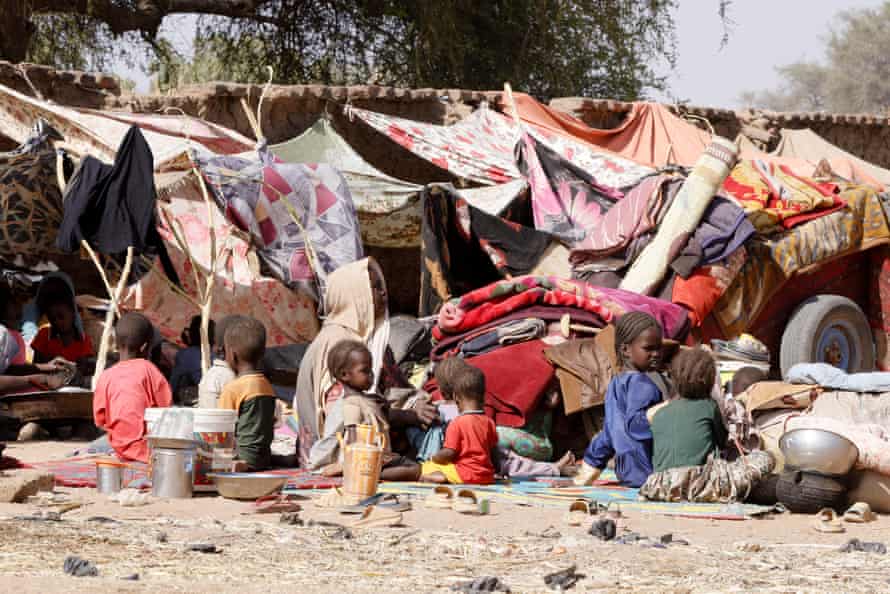Fears are mounting for hundreds of thousands of civilians trapped in the Sudanese city of El Fasher after the paramilitary Rapid Support Forces (RSF) announced it had seized control of the city following a year-long siege.
The RSF said on Sunday that it had taken the army’s main base in the city, located in the Darfur region, and declared it had “extended control over the city of El Fasher from the grip of mercenaries and militias”. The claim, if confirmed, would mark a significant shift in Sudan’s civil war, which has raged since April 2023.
The Popular Resistance, a local pro-army militia, rejected the RSF’s statement, insisting that the army remained in “more fortified positions” and that residents were continuing to resist “terrorist militias”.
The United Nations’ humanitarian chief, Tom Fletcher, said he was “deeply alarmed” by reports of RSF fighters advancing further into the city and cutting off escape routes. He called for an immediate ceasefire, humanitarian access, and safe passage for civilians wishing to leave.
The RSF, however, insisted it was committed to providing “safe corridors for all those who wish to move to other locations, as well as the necessary protection for all those in the city”.
Sudan has been engulfed in civil war since April 2023, when a power struggle between the army and the RSF erupted into open conflict in the capital, Khartoum, before spreading rapidly across the country.
Two years on, more than 13 million people have been displaced and half of Sudan’s 51 million population require food aid. Although the army recaptured Khartoum in March 2025, allowing many residents to return, fighting has continued in the south and west.
El Fasher, in western Darfur, has been under siege since May 2024. In August, the UN reported that more than 600,000 people had fled the city, while 260,000 remained trapped without access to aid.
The situation has been compounded by a telecommunications blackout and outages of Starlink satellite internet, which have prevented independent reporting from the city.
Earlier this month, RSF drone and artillery strikes killed at least 60 people in a displacement shelter in El Fasher, underscoring the peril faced by civilians.
If the RSF’s claim of capturing the city is verified, it would mean the group, led by Mohamed Hamdan Dagalo, widely known as Hemedti, now controls all five states of Darfur. Analysts warn that such a development could herald the effective partition of Sudan.
Dagalo was sworn in as head of the RSF’s parallel government in August in Nyala, Darfur’s largest city, and has since intensified the siege of El Fasher.
Both the Sudanese army and the RSF have been accused of committing war crimes during the conflict. The RSF and allied militias have been accused of targeting non-Arab ethnic groups in Darfur. A UN report published in November 2024 cited testimony that RSF fighters had threatened to force women to bear “Arab babies”.
The RSF traces its origins to the Janjaweed militias, which were accused of carrying out genocide in Darfur under the orders of former president Omar al-Bashir in 2003.
In January this year, the United States government formally declared that the RSF had committed genocide.
The capture of El Fasher, if confirmed, would represent a major victory for the RSF and a severe blow to Sudan’s army. It would also deepen the humanitarian crisis in Darfur, where famine was declared in a displacement camp last year.
With civilians trapped, aid blocked, and atrocities continuing, international pressure is likely to intensify on both sides to agree to a ceasefire. For now, however, the fate of El Fasher’s residents remains perilous, caught between warring factions in a conflict that shows little sign of resolution.



